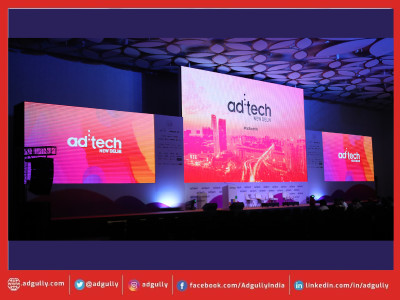Significance of Blockchain in AdTech 2021
The phenomenon of the ‘pacing problem’ that innovation outpaces regulation is germane to the AdTech industry. Technology is changing exponentially but socio-economic and legal systems are changing incrementally. Recently, there has been a lot of excitement around blockchain applications in the AdTech industry. Multiple companies have been working in this domain for years but there is still huge untapped potential and issues that are needed to be explored. For the universe, blockchain is a large excel sheet that operates in a decentralized network format. It is an immutable distributed ledger or record of transactions between a network of participants. Here the ledgers are governed by the pre-defined rules and are validated by the network. The network can be public like bitcoin or private with selected participants. The data cannot be destroyed by any single person or entity, hence, it is immutable. Cryptocurrency is the currency that operates on blockchain. While bitcoin works as an anonymous currency, blockchain tech used in other businesses doesn’t need to be anonymous.
Blockchain in Media Ecosystem
In online advertising, data is precious. For example, it reveals patterns in one’s shopping and search history (comprising social media posts). Now, blockchain enables the distribution of this data to the entire network. It gives the user more control and puts the data exclusively in their hands. At the same time, this decentralised data benefits the ad creators as well. They will have a shared pool of relevant data, making targeting more accurate and less expensive. It enables advertisers to target users who have explicitly specified their interest (along with data sharing preferences). Hence, it targets not on browsing patterns but also hard data.
There are multiple uses of blockchain technology in the media ecosystem. Monetisation that allows writers or creators to distribute content on blockchain and get paid immediately, or open protocol like adChain based on the Ethereum blockchain, tagging a piece of creative to understand its placement, who viewed it, and if any interaction was made with the same. The effectiveness of the blockchain can be extended with the help of smart contracts that allow transactions to be settled when specific conditions are met. For example, if one person sells a concert ticket to another, the funds could be released to the buyer only after the ticket’s authenticity is validated.
There are decentralised search ecosystems that are built on blockchain and use smart contracts to connect consumers to advertisers. Buyers can get competitive offers for sharing their data and have the assurance that the offers they receive are authentic. A smart contract can also be put in motion after someone clicks on an ad, to ensure that they don’t see the same ad again. But one of the key challenges that are faced by blockchain technology in AdTech is its limited adoption. Blockchain relies on multiple nodes and if stakeholders don’t participate then the benefits will be of minimal value. Another predominant issue is how does the technology fair post the adoption of Privacy laws.
Blockchain and Privacy Frameworks
Both blockchain and privacy laws were formulated to let individuals have greater autonomy and control over their data – but from opposite ends of the spectrum. Blockchain uses advanced cryptography and consensus algorithms to avert the need for centralized authorities to secure transactions. Privacy laws, on the other hand, relies on a framework with centralized authority and a linear understanding of data collection and management, to give individuals a higher degree of control over the processing of their personal data.
One of the key features of blockchain is its proposed immutability, meaning that data stored in a blockchain-based database cannot be subsequently altered. This is viewed by a certain faction as a feature that contrasts with data privacy laws(like GDPR). It enables data subjects to have control over their personal data, including its provenance and storage. It decrees that the person collecting and storing such data must agree to deliver, amend, and delete that data on request.
On the face of it, these obligations conflict with the inherent “immutable” feature of the blockchain. However, understanding whether a particular network is consistent with the obligations under respective data protection frameworks requires a case-by-case analysis. It is possible to build technological mechanisms into the blockchain network to facilitate regulatory compliance. Besides, communicating with members on how the blockchain works, utilises personal data and ensures an individual’s rights will help in overcoming the privacy issues that are raised under GDPR.
Building efficient Blockchain-based marketplace
Many industry stakeholders are making strides to pacify such challenges. Brave Browser has amalgamated privacy with a blockchain-based advertising platform and has recently partnered with NYIAX, leading advanced contract management exchanges. The aim is to aid advertisers to connect with users in a privacy-centric approach. A key and distinctive feature of Brave is its model that rewards consumers for their attention and it has helped them to achieve an engagement rate of more than 9% (ninety-day platform average).
Going forward, the industry needs to contrive a solution that creates an accountability on supply chain ecosystem building transparency and efficient blockchain-based marketplace for publishers, advertisers, and users by accurately valuing and rewarding the key driver of Internet content i.e. user attention.
DISCLAIMER: The views expressed are solely of the author and Adgully.com does not necessarily subscribe to it.
















Share
Facebook
YouTube
Tweet
Twitter
LinkedIn